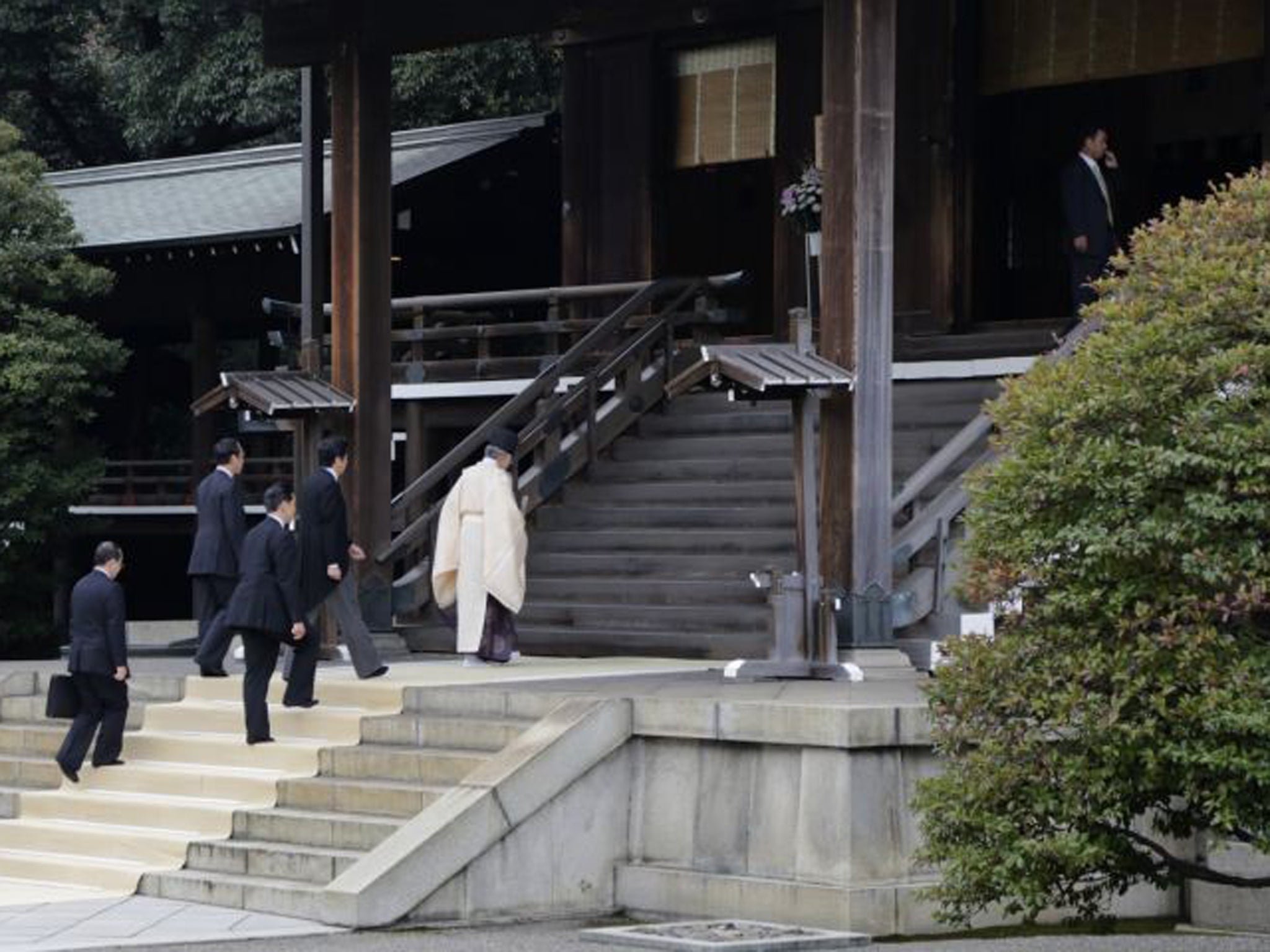Japanese prime minister Shinzo Abe has said he wants to explain to China and South Korea about his visits to a shrine which honours the country's war dead, including 14 top-rated war criminals, but Beijing again demanded he correct his views on the country's role in the Second World War.
Mr Abe said that Japan has not made any direct overtures, but he hopes the leaders can meet to help resolve antagonism over territorial disputes and historical issues.
“At the moment, there is no plan for a summit meeting, but since there are some difficulties and issues we should be speaking together without setting any preconditions,” he said.
“I would really like to explain the intent of my visits to the Yasukuni Shrine directly to them,” he said. “We are not making any direct approach on this, but the door to dialogue is open. I would like to hold Japan-China and Japan-South Korea summit meetings.”
Japan colonised Korea and occupied parts of China before and during the war and that often brutal legacy taints relations with its neighbours decades later. China and South Korea reacted angrily to Mr Abe's Boxing Day visit to the shrine in Tokyo.
The Chinese Foreign Ministry has said Mr Abe will not be welcome in Beijing until he admits his mistake.
On Monday the Chinese Foreign Ministry said that to improve relations with Beijing, Mr Abe “needs to correctly view and deeply reflect on the Japan's militarist history of external invasion and colonialism, show sincerity and make concrete efforts to improve ties with neighbouring countries.”
“Judging from his moves, prime minister Abe is hypocritical when he pays lip-service to improving relations with China. It is he himself who closed the door to dialogue with China.”
South Korean president Park Geun-hye blamed Tokyo for the strained ties, and said that any summit with Abe could be held only after sufficient preparations.
“I have never said I won't have the Korea-Japan summit talks. But I think the ... talks must bring out results that are helpful for the development of ties between the two countries so there should be sufficient preparations” for the summit, he said.
Abe has said Japan should never wage war again, though he favours strengthening the military and revising the country's pacifist constitution. That agenda is popular with some Japanese, though polls show the majority are more concerned about the economy.
“I am confident that we can gain understanding ... if we firmly explain the Abe administration's pro-active pacifism,” he said.
AP
Read more:
Subscribe to Independent Premium to bookmark this article
Want to bookmark your favourite articles and stories to read or reference later? Start your Independent Premium subscription today.


Join our commenting forum
Join thought-provoking conversations, follow other Independent readers and see their replies